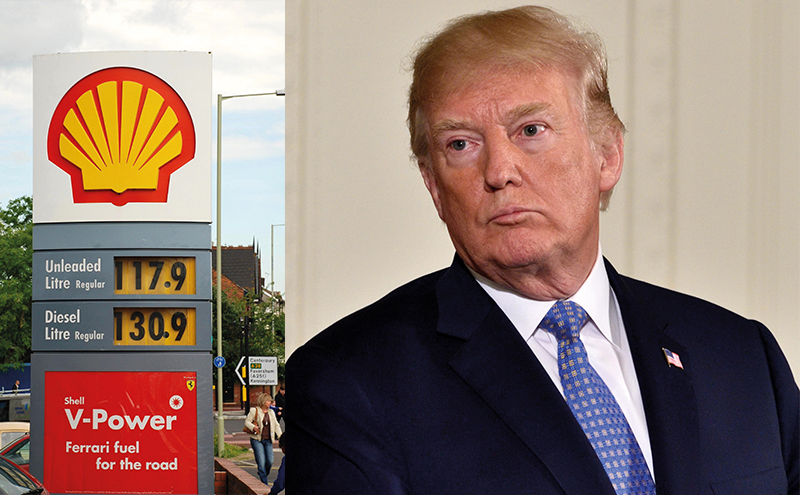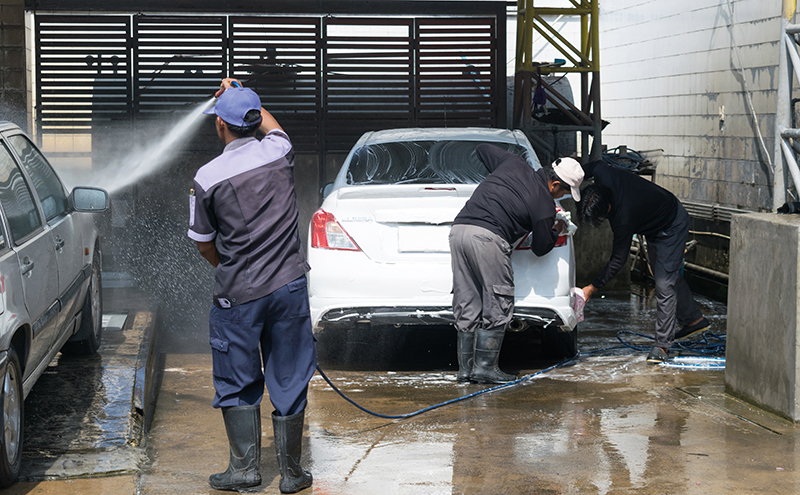Brian Madderson on forecourt retailing in 2018

THE future of any industry can be tough to predict but, for forecourt retailers, there’s not a crystal ball in the world that could provide certainty on wholesale fuel prices.
Since 2014, fuel prices have been on something of a rollercoaster ride, with Brent Crude prices careening from peak to trough before rallying upwards again.
In the days that followed the Scottish independence referendum, the oil price continued to tick upwards to around $114 a barrel, but a decline that started as a dip in July 2014 quickly snowballed into a crash that put serious pressure on businesses in north east Scotland, with oil bottoming out around $30 a barrel in early 2016.
In the intervening years however, prices have been creeping up. This increase has gathered pace in 2018 thanks to some headline grabbing political decisions on both sides of the Atlantic.
That might be good news for the Kremlin and the House of Saud, but it puts a squeeze on Scottish forecourt retailers.

Fuel prices rising
Brian Madderson, chairman of the Petrol Retailers Association, reckons a number of factors have contributed to the rise in Brent Crude that’s sending wholesale fuel prices skywards.
“The reason for Brent Crude going up is that OPEC and Russia’s decision to cut back on production over the last couple of years has clearly been working. Global stocks of oil have been down and at the same time global demand from emerging markets has still been increasing,” said Madderson.
“Finally there’s the Trump factor. Trump said he was planning to take the USA out of the Iran agreement and although that hasn’t happened yet it is scheduled and that has spooked the market.”
Madderson added that wholesale fuel prices are being further hit by the decline in Sterling. As the dollar value of Brent Crude has been rising, the dollar value of Sterling has been dropping, pushing fuel wholesale prices even higher.
And while Madderson said he is not in the camp that believes Brent Crude could go as high as $100 a barrel again, he does foresee high prices for the rest of 2018. That could mean a footfall hit for retailers as consumers adapt their driving habits with the goal of filling up on fewer occasions.
OPEC and Russia’s decision to cut back on production over the last couple of years has been working.
“We start to see a real decline from non-essential driving,” he said.
“That is, for instance, taking the kids to the seaside at the weekend or driving to go and see granny and grandpa.”
Supermarkets sweep up
Brexit and Trump aren’t the only big surprises to shake up the forecourt sector, the supermarkets have decided to throw some curveballs of their own.
Not to be outdone by Tesco’s merger with wholesaler Booker, Sainsbury’s and Asda parent firm Walmart has proposed a merger of the supermarket giants which is currently undergoing a Competition and Markets Authority (CMA) investigation. What the CMA decides to do about the merger will have ramifications for forecourt retailers, as Madderson explained.
“From the analysis we have done, Sainsbury’s and Asda together don’t have 25% of the retail forecourts market, they’ve got something like 16-17%.
“I don’t think there would be an issue with the CMA on fuel, however on the grocery side we are expecting the CMA to act on stores that are adjacent to each other,” he said.
Should the CMA force the new Sainsbury’s-Asda entity to offload some supermarket sites, it could make waves in the forecourt sector by opening up a number of large forecourt sites.
“The big question is would they still want to operate those sites on a standalone basis,” said Madderson.
“That’s a big question and no one has a clear view on that at this stage.”

Alternative fuels
No clear view has become something of an unfortunate theme for forecourt retailers in recent times, in part due to governments in Edinburgh and London committing to a reduction of fossil fuel vehicles on the road without a clear roadmap for the change.
While the UK Climate Change Act sets a long-term target of reducing emissions to 20% of 1990 levels by 2050, Madderson reckons the road ahead is difficult as consumers continue to express concerns over alternative fuel vehicles.
He highlighted concerns over how far an electric or hybrid vehicle may travel between charges, how long it takes to charge an electric car, and questions over the resale value of these vehicles.
The PRA chairman also pointed to sales figures which he reckons show anxiety among consumers over the current crop of plug-in and hybrid vehicles.
This is a problem that we’ve all got. Government aspiration is way ahead of technology.
“Hybrids have seen a good increase this year, up 16% on the first four months compared with the same period in 2017. But the surprise was fully electric vehicles, with sales down 10%.
“This suggests that the consumer is not actually convinced about the future of fully electric vehicles.”
With this in mind, Madderson suggested forecourt retailers approach electrification with a degree of caution; a major investment in today’s technology could be cash down the drain should improved technology appear in the next few years.
“This is a problem that we’ve all got. Government aspiration is way ahead of technology.
“We’re working with government on the road to zero carbon emmissions by 2050.
“That’s got massive repercussions for the whole oil industry whether it be heating oil, asphalt or aviation fuel.
“The oil industry provides a number of essential products for different industries. How this is going to play out I really don’t know.
“We are saying think very carefully about how far you go down the electric charge route, because what you see today could be outmoded going forward,” he said.

Diversification
Alternative fuel isn’t the only issue that Madderson and the PRA have been engaging with government on, questionable hand car wash sites have also come under fire from the trade association.
Having absorbed the Car Wash Association under the PRA banner, Brian said members have reported a major shift towards hand wash sites with compliance records that leave much to be desired.
“With our members, we have seen a significant move away from auto to unregulated hand washing, where their employment compliance is dodgy with many certainly not paying tax.”
Madderson added that the environmental damage unregulated hand car washing sites can produce through improper drainage was another cause for concern and government is starting to take notice.
Think carefully about how far you go down the electric route because what you see today could be outmoded.
“We are building up a head of steam with government agencies and HMRC and working with other associations on the Continent.”
Should the PRA’s campaign lead to a curtailing of non-compliant car washing sites, Brian reckons forecourt retailers could see renewed interest in auto washing – which is just the kind of diversity he reckons the sector needs.
“The idea going forward is we’re looking for more exciting reasons for consumers to come to our forecourts.
“One is clearly the convenience and food to go in shops, which is really moving along well now.
“The second is to generate interest in the automatic car wash,” he said.


















